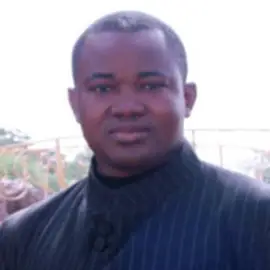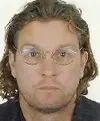First PhD student graduates at "Centre of Excellence" in Accra
May 31, 2012.
“Shaping the development agenda of Ghana”
Interview with Michael Ayamga about his doctoral studies at the Ghanaian-German Center for Development Studies and Health Research. Its Division for Development Studies (GGDDS) is run by ZEF and the Institute of Statistical, Social and Economic Research (ISSER) and belongs to the five "Centres of Excellence" in Africa initiated by the German Academic Exchange Service (DAAD) in 2008.
What is special about the PhD program of the GGDDS?
The doctoral program offers a great opportunity to get in touch with other researchers from Ghana and Germany. During the initial workshop in Ghana we learnt a lot from the German researchers who held the workshop. The lecturers were also the first contact persons at ZEF which turned out to be very useful in the process of conducting my research and writing my thesis. Moreover, the institutional framing at the University of Ghana was much better than at other universities. Our supervisors were very engaged and there were no delays in the marking of our work. In other Ghanaian doctoral courses it is often not possible to complete during 3 years, just because it can take a long time until the lecturers have marked the work of the students. So, the fact that I was able to complete my PhD within three years shows that this is an extraordinary course. An important fact was the scholarship from DAAD that enabled me to focus 100% on my doctoral course. We also have a very good access to resources, like books and other scientific literature.
How does your stay at ZEF in Bonn contribute to your research?
During the 10 days at ZEF in Bonn I was able to meet a lot of people who accompanied me during my PhD course, but I was also able to get to know researchers that I didn’t know before. I held a lecture on land reform at ZEF and will give another talk at the conference “Embattled Spaces – Contested Orders” in Cologne which gives me the opportunity to present my research to a broader audience. Also, it is a great help in establishing a network of researchers to co-author publications with and eventually become partners in future projects. For young researchers it is important to get in touch with more experienced researchers to learn from their experience. This kind of mentorship is a huge advantage of the doctoral program. Also, my stay in Bonn allowed me to meet other economists and researchers in related disciplines.
What are your plans for the future?
For the next 10 years or so I plan to continue my teaching at university. Besides, I will continue to conduct research. I hope that my research can be put into practice, e.g. by helping policy makers like the agricultural ministry to develop and implement a successful land reform. I also hope that the GGDDS will expand to my home university, the University for Development Studies in Tamale, so that more students can benefit from it. I will definitely stay in the academic sector, but there will be other graduate students who will work in the private sector. As I see it, the students from this program will be shaping the development agenda of our country in the future.
Thank you very much for the interview, Mr. Ayamga.
The interview was conducted by Andreas Rüther, ZEF, in May 2012.



